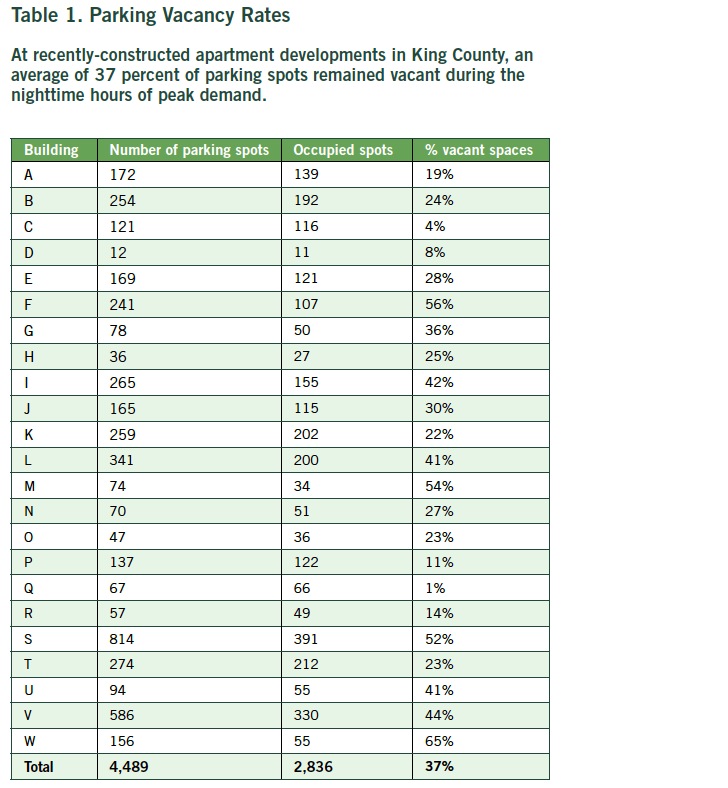SIGHTLINE INSTITUTE
Who Pays for Parking?
How the oversupply of parking undermines housing affordability
By Jesse London and Clark Williams-Derry
Executive Summary
An analysis of 23 recently completed Seattle-area multifamily housing developments reveals that the practice of providing abundant “cheap” parking actually makes rental housing more expensive—particularly for tenants with modest incomes and who don’t own cars. This analysis shows that:
- Seattle-area apartment developers build far more parking than their tenants need. Across all developments in our sample, 37 percent of parking spots remained empty during the night, the time of peak demand for residential parking. Every development had nighttime parking vacancies, and four developments had more than twice as many parking spots as parked cars.
- Many tenants don’t own cars. On average, the developments in our sample had 20 percent more occupied apartments than occupied parking spaces—a rockbottom estimate for the share of apartments whose tenants don’t park on-site. In all, 21 of the 23 developments had more occupied apartments than parked cars.
- Multifamily developments lose money on parking. No development in our sample was able to recover enough parking fees to recover the full estimated costs of building, operating, and maintaining on-site parking facilities.
- Car-free tenants still pay for parking. Landlords’ losses on parking—calculated as the difference between total parking costs and total parking fees collected from tenants—add up to roughly 15 percent of monthly rents in our sample, or $246 per month for each occupied apartment. Because landlords typically recoup these losses through apartment rents, all tenants—even those who don’t own cars—pay a substantial hidden fee for parking as part of their monthly rents.
Download full version (PDF): Who Pays for Parking?
About Sightline Institute
www.sightline.org
“Sightline Institute is an independent, nonprofit research and communications center—a think tank—founded by Alan Durning in 1993...Sightline equips the Northwest’s citizens and decision-makers with the policy research and practical tools they need to advance long-term solutions to our region’s most significant challenges. Our work includes in-depth research, commentary, and analysis, delivered online, by email, and in-person to Northwest policy champions.”
Tags: Clark Williams-Derry, Housing, Jesse London, King County, Parking, Seattle, Sightline Institute, WA, Washington







 RSS Feed
RSS Feed